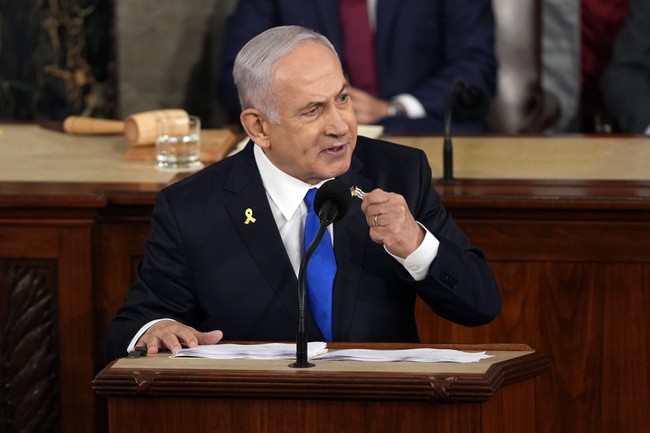We support our Publishers and Content Creators. You can view this story on their website by CLICKING HERE.

I’ll believe it when I see it. Not that the situation doesn’t call for a rational change of tactics and strategy for a proxy army that has wrought utter destruction upon itself and now has no allies worth relying on any longer. That’s precisely the situation in which Hamas and what’s left of its leadership finds itself.
Advertisement
After Iran cut bait in Lebanon, this makes all sorts of sense, but Hamas has rarely acted rationally except in pursuit of total genocide of the Jews:
One proposal discussed by some Hamas leaders would permit Israel to maintain a presence — at least temporarily — in the border region between Egypt and Gaza, according to two people familiar with the group’s internal thinking. Hamas officials have publicly rebuffed any long-term Israeli control of the area, which is known as the Philadelphi Corridor.
In a statement on Wednesday, Hamas praised Hezbollah and said it was committed to efforts to achieve a cease-fire in Gaza based on parameters it had agreed to previously. Hamas said those parameters included a cease-fire, Israel’s withdrawal, the return of displaced people to northern Gaza and an exchange of Palestinian prisoners for hostages.
Intelligence services of three Middle Eastern countries, including Israel, have determined that Hamas appeared to be more willing to make concessions, according to an official from each of the countries, all three of whom spoke anonymously to discuss sensitive diplomacy. Pressure from Qatar and Turkey, countries that have close ties to the militant group, may have contributed to the change, the officials said.
In the first place, beware of such “leaks” in any dealings with Hamas, especially after October 7. We have heard similar “leaks” in the past, where the media claims that Hamas is willing to offer concessions, only to find out that they renege on them when the time comes to reach an agreement. Hamas knows that the West, and especially the Joe Biden administration, will then put pressure on Israel to offer even more concessions to convince Hamas to come back to the table. When Israel refuses, the media paints Benjamin Netanyahu as the problem, and so do Biden and his team of idiots running foreign policy.
Advertisement
Israel stopped playing that game months ago. Has Hamas? Maybe. They have to know that the team of useful idiots on the American side will get replaced shortly with a foreign-policy team that will force their Iranian patrons back into poverty or worse, and who might be inclined toward more direct action against a group that murdered dozens of Americans in the October 7 massacres, not to mention hostage Hersh Polin. Both time and money are running out, and Hamas has to know it.
On the other hand, that’s been true ever since the Israelis defied Biden and captured Rafah. It’s been true ever since Operation Grim Beeper decimated Hezbollah. It’s been certainly obvious since the IDF offensive on that front forced Iran to accept Israel’s terms for a cease-fire in Lebanon and left Hamas twisting in the Gaza wind. And yet, Hamas has not seriously proposed its own peace plan other than its constant demand for Israel’s complete withdrawal from Gaza and restitution for damages before even discussing the fate of the hostages. All of this speculation about concessions comes from their mediators, the same group of fools that participated in Hamas’ stupid political manipulations for the past thirteen months.
This smells like another attempt to paint Hamas as a reasonable participant in negotiations at Netanyahu’s expense. Egypt now wants to bring a “comprehensive” cease-fire proposal for Gaza to the table, while hostage families (understandably!) ramp up pressure for a deal after the cease-fire in Lebanon. Joe Biden desperately wants some kind of a foreign-policy win before he leaves office, so much so that he’s now trying to coordinate with Trump on a Gaza deal:
Advertisement
As the Biden administration seeks to broker an end-of-term peace deal in the Middle East, it is bringing along a surprising back-seat partner: Donald Trump.
Instead of slamming a White House-brokered Lebanon cease-fire between Israel and Hezbollah announced Tuesday, Trump and his advisers have stayed largely quiet about the diplomatic breakthrough, while Biden administration officials shift their focus to a cease-fire in Gaza, a much tougher task.
It is a rare sign of tacit agreement with President Biden’s approach that could produce mutual benefits: for Biden, a legacy-defining foreign-policy win before he departs in January; for Trump, one fewer global crisis that he will have to handle.
Trump wouldn’t mind that, especially since he could easily and justifiably claim credit for such a deal. But even Biden’s allies recognize that Hamas isn’t any more interested in peace than they were on October 6, 2023:
“I’m skeptical that there will be a cease-fire deal in Gaza regardless of the coordination happening with the Trump transition team,” because Netanyahu is reluctant to commit to a permanent halt in the fighting, said Michael Hanna, a Middle East expert at the International Crisis Group.
Even if Netanyahu did want to move forward now, “Netanyahu’s coalition partners don’t want a deal, and Hamas doesn’t want a deal,” said Steven Cook, a senior fellow for the Middle East at the Council on Foreign Relations.
Hamas doesn’t want a deal — Hamas wants a genocide. They have spent the last thirteen months proving what the previous eighteen years demonstrated clearly enough; Hamas will not transform itself into a legitimate political party. They want to be an army of jihadist conquest, not a “responsible” partner for peace, and will violate any agreement they sign if they see a path to wipe out Israel and the Jews.
Advertisement
This is why we used to have a policy against negotiating with terrorists. It’s time to return to that policy.

 Conservative
Conservative  Search
Search Trending
Trending Current News
Current News 







